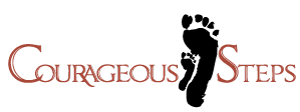ORGL-530: Servant Leadership
Expected Competencies
Conceptual Understanding of Servant Leadership: Develop a comprehensive understanding of the philosophy, characteristics, and values underlying servant leadership, as described by Greenleaf, Spears, and contemporary theorists.
Personal Leadership Reflection: Explore one's leadership identity, values, and development through introspection and critical self-reflection, grounded in servant leadership principles.
Application of Servant Leadership to Practice: Demonstrate the ability to identify and evaluate servant leadership behaviors in real-world contexts, particularly through case studies, interviews, and organizational examples.
Theoretical Integration: Apply human development theory to servant leadership models (e.g., Hall’s phases, Horsman’s leadership theory) and use them to assess leadership maturity, motivation, and impact.
Ethical and Relational Leadership Practice: Emphasize integrity, authenticity, and relational awareness in leadership practice, focusing on developing others and addressing systemic issues with empathy and foresight.
Achieved Competencies
Applied Servant Leadership Models: Demonstrated deep understanding of Greenleaf’s and Spears’ principles through analysis of both contemporary leadership challenges and historical examples.
Leader Interview and Practice Insight: Conducted a structured interview with a healthcare executive, identifying the implicit embodiment of servant leadership and articulating how core values are expressed through organizational behavior.
Personal Reflection and Value Alignment: Engaged in introspective writing to clarify how servant leadership values (e.g., listening, empathy, growth of people) align with personal and professional development goals.
Film Analysis Through Developmental Lens: Interpreted Mandela’s leadership in Invictus using Hall’s Phases of Human Development and Horsman’s stages of leadership consciousness, showing nuanced understanding of servant leadership across time and adversity.
Critical Evaluation of Power and Influence: Examined the use of persuasion, conceptualization, and foresight in leadership, reflecting on ethical implications and strategies for organizational transformation.
Applied Competencies
Leader Interview: Human Resources Through a Servant Lens
Interviewed Kristin Flynn, CHRO at Sierra Vista Regional Medical Center, revealing servant leadership practices embedded in HR systems. Explored real-life applications of listening, growth of people, and awareness in a high-stakes healthcare environment.Film Critique: Nelson Mandela in Invictus
Analyzed Mandela’s leadership transformation through developmental theory, highlighting how his servant-first approach united a divided nation. Illustrated how paradox, purpose, and foresight shaped his leadership legacy.Personal Reflection: A Journey Inward
Articulated a personal leadership journey that mirrors the inward-outward path of servant leadership. Explored relational impact, identity, and the call to lead with conscience, humility, and courage.
Artifact Inclusions
Putting the Human Back in Resources – Leader Interview Paper
Servant Leadership: The Value of One – Film Analysis Essay
A Journey Inward – Personal Reflection Essay
References
Greenleaf, R. K. (1977). Servant Leadership: A Journey into the Nature of Legitimate Power and Greatness. Paulist Press.
Spears, L. C. (2010). “Character and Servant Leadership: Ten Characteristics of Effective, Caring Leaders.” The Journal of Virtues and Leadership, 1(1), 25–30.
Horsman, J. H. (2013). Foundations of Servant Leadership: Course Notes. Gonzaga University.
Eastwood, C. (Director). (2009). Invictus [Motion Picture]. Warner Bros. Pictures.
Key Words
Servant Leadership; Greenleaf; Spears; Human Development Theory; Leadership Identity; Personal Reflection; Leader Interview; Organizational Ethics; Invictus; Nelson Mandela; Kristin Flynn; HR Leadership; Persuasion; Foresight; Conceptualization; Growth of People; Conscience in Leadership

